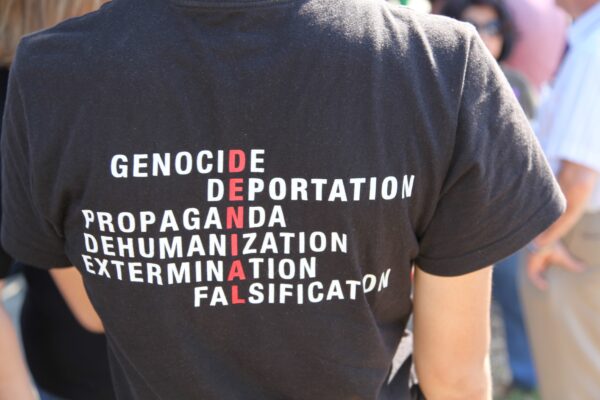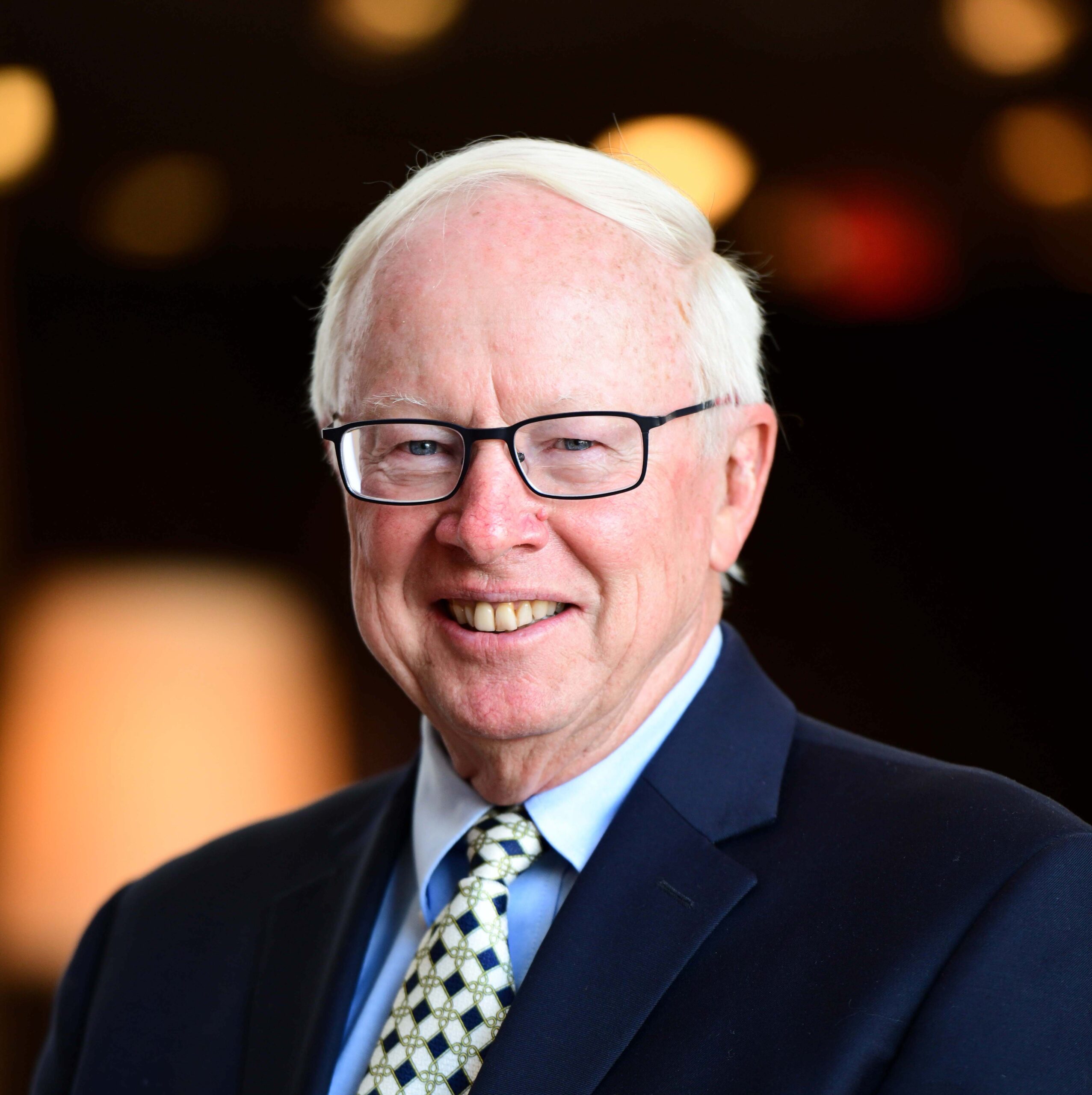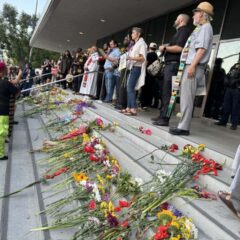Donald Miller gave this speech at the Armenian Genocide Martyrs Monument in Montebello, CA on April 23.
As we look back on the Armenian genocide from the perspective of 101 years, it is useful to ask ourselves—“What moral lessons do we want to pass on to our children and grandchildren, or in my case to my half Armenian children, Shont and Arpi, and to our one-quarter Armenian grandchildren, Raffi, Liam, Lyla, and Olivia, ages 3-11?”
Three important imperatives come to mind:
- Always speak the truth in spite of the consequences;
- Protect the rights of minorities and counter propaganda that makes them less than human;
- Provide humanitarian aid to those outside your clan or sub-group, following the biblical principle—“Do unto others as you would have them do unto you.”
Let me explain each of these imperatives and why I root them in the Armenian genocide.
First, denial of an atrocity is akin to committing one. It makes one a bystander, a passive moral agent, an onlooker. Martin Luther King said, “In the end we will remember not the words of our enemies, but the silence of our friends.”
This week it was a great honor to have dinner with the former Ambassador to the Republic of Armenia, John Evans. In 2005 he breached official protocol of the US State Department and publically used the “g” word, genocide. In various speeches to university students and other audiences, he named the events of 1915-16 for what they were, a genocide, which led to his censure by the State Department and later resignation as a senior diplomat.
John Evans was driven by his integrity after studying the historical record of the treatment of Armenians under the Ottoman government. He spoke truth to power in spite of the consequences. Ambassador Evans new book, Truth Held Hostage—published by the Gomidas Institute—is a portrait in courage. He is a 21st century Henry Morgenthau. He is an example that self-interest should not be at the heart of our morality. We should always speak the truth in spite of the consequences.
Second, the Armenian genocide—and the killing of Greeks and Assyrians during the same period—provides a graphic moral example of why we should always protect the rights of minorities in our midst. The perpetrators of genocide use propaganda to diminish the humanity of minorities—they are gauvurs, infidels or in the case of the Hutu majority in Rwanda, the Tutsi minority were called cockroaches, snakes. If one is an insect, a dangerous reptile or can be demonized as a threat to your survival, it is easier to kill them than if they are humans, with feelings, like you.
Currently, there is a lot of demonizing taking place by politicians, and our country seems ripe for it. People who are not “white” or have a religion other than “Christian” are marginalized. This has echoes of “Turkey for the Turks”; rid the country of those who do not belong. Hence, rooted in the history of Armenians as a Christian minority in the Ottoman Empire is the moral lesson: protect the rights of minorities, counter propaganda that dehumanizes them.
Third, we have a moral obligation to provide humanitarian aid to those outside of our immediate clan or in-group. In the aftermath of the Armenian genocide, more than $100 million dollars was collected from colleges, universities, churches and ordinary non-Armenian citizens in the U.S. The efforts were led by James Barton, foreign secretary of the American Board of Commissioners for Foreign Missions; Cleveland Dodge, Vice President of the Phelps Dodge Corporation; and Charles Crane, a plumbing manufacturer.
Even the proceeds of the Harvard-Yale football game in 1916 went to relief for the “starving Armenians.” The Rockefeller Foundation gave $300,000 between 1915 and 1916. During the period from April 1917 to October 1918, donations to Near East Relief were averaging $500,000 a month. Furthermore, between 1916 and 1929, nearly 1,000 Americans served overseas in relief efforts in Turkey, Lebanon and Greece. Europeans nations were also responding, with legendary work by people like Papa Kuenzler, a Swiss missionary.
Today, migrants are on the front page of every newspaper. When you look at the photographs of these migrants, their temporary shelter and conditions often resemble the plight of Armenian survivors after the genocide. My own father-in-law grew into manhood in an orphanage in Karput, Turkey and then Corfu, Greece. It was there that he rediscovered his Christian heritage, since he had converted to Islam in a Turkish household.
I think we have all been troubled by the events earlier this month in Nagarno-Karabkh with the unprovoked assault by Azeri troops on the people of Artsakh. Looking at the destroyed homes, the school child who was killed as well as soldiers, it reminded me of when Lorna and I visited Stepanagert in 1993. Every window was blown out by bombs in the children’s hospital where we slept; the main hotel in the center of town was filled with refugees—women and children—who had fled from the front lines of the conflict; there were numerous fresh graves in the cemetery we visited. Then and now many journalists do not take the time to understand the origins of this conflict or the geopolitics of the region.
In conclusion, I leave you with three universal moral principles—principles to pass on to our children and principles by which we might also live:
- Always speak the truth in spite of the consequences. In short, be a person of moral courage.
- Protect the rights of minorities and counter propaganda that makes them less than human. Yes, examine our current context for parallels of what occurred under Ottoman rule to the Armenians.
- Provide humanitarian aid to those outside your clan or sub-group, recognizing that they are humans just like you, with feelings, emotions, hopes and dreams.
Here on the eve of the 101st commemoration of the Armenian genocide, we are challenged morally to counter violence, denial of genocide and express our humanity in compassionate love to our neighbors, including those of different colors, faiths, and social and national backgrounds.
Donald E. Miller is the co-founder of the USC Center for Religion and Civic Culture.





